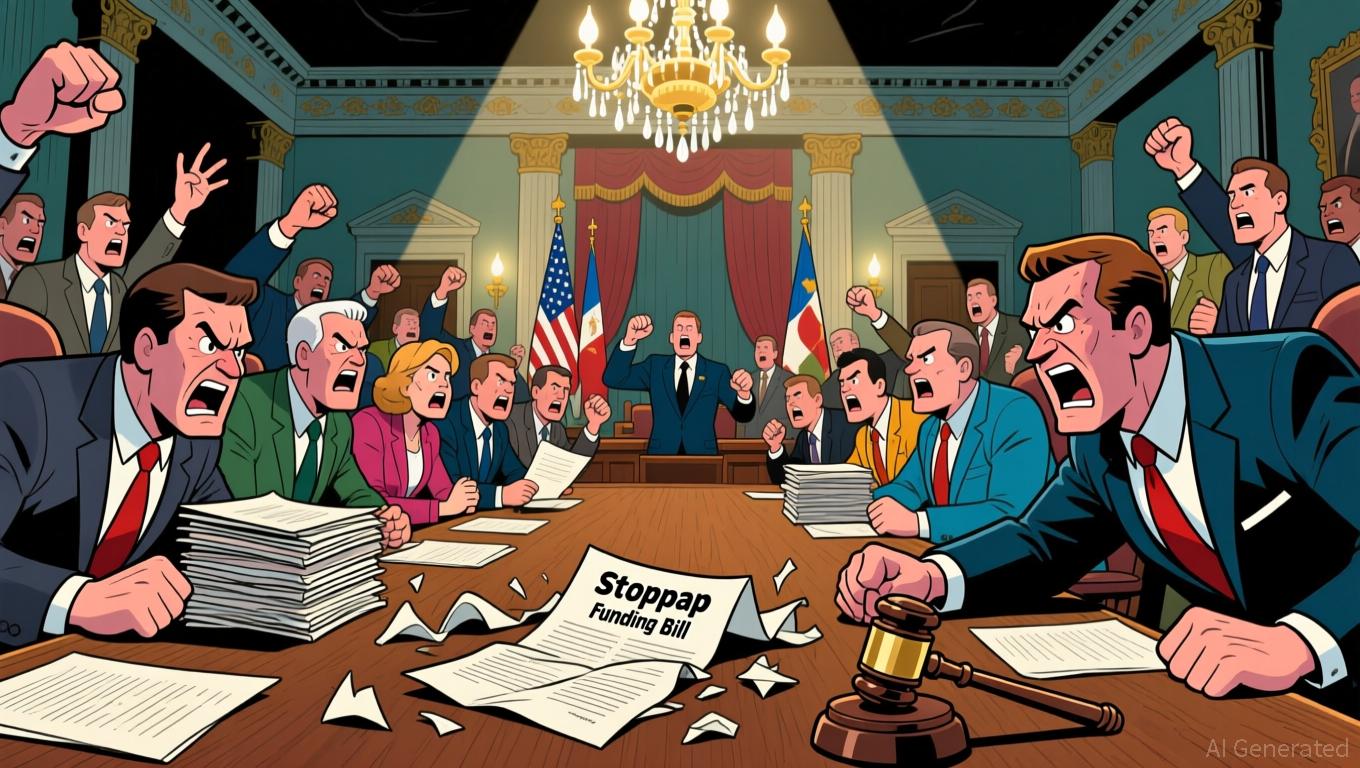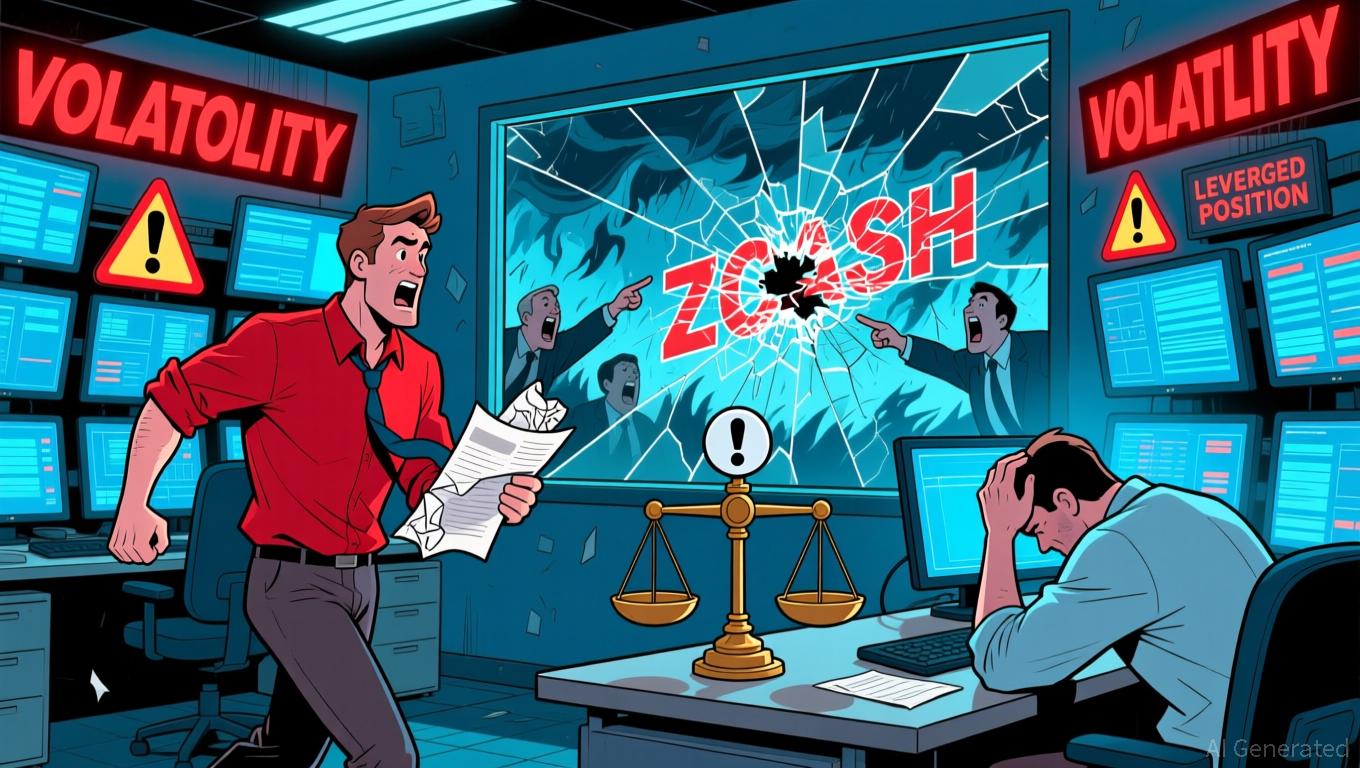Shutdown Concludes with Expensive Deal as Democrats Forfeit Healthcare Bargaining Power
- U.S. government shutdown ended after 43 days as House passed stopgap funding bill, backed by Trump and Republicans despite Democratic opposition to omitted healthcare subsidies. - Democrats lost leverage in securing extended ACA subsidies after 8 Senate members defied party, weakening their position ahead of December voting plans. - Shutdown disrupted federal services including economic data collection, air traffic control, and tax processing, with judge ruling Trump's partisan email use unconstitutional
The longest government shutdown in U.S. history has officially concluded after the House of Representatives approved a temporary funding measure late Wednesday, preventing additional interruptions to federal operations and employees. The

The deal, reached after 40 days of gridlock, came at a steep political price for Democrats.
The shutdown has left a lasting impact on government functions and public confidence.
Passing the funding bill does not bridge the deeper partisan divides. Democrats remain dissatisfied with the absence of expanded healthcare subsidies, while Republicans argue the agreement was essential to avoid further economic harm. The shutdown also highlighted weaknesses within the federal workforce, as union representatives and lawmakers pointed out the personal toll of political standoffs. With the government now back in operation, focus shifts to the upcoming December vote on subsidies and the ongoing redistricting debates that could alter the balance of power in Congress in 2026.
Disclaimer: The content of this article solely reflects the author's opinion and does not represent the platform in any capacity. This article is not intended to serve as a reference for making investment decisions.
You may also like
Zcash News Update: ZEC Price Swings Cause Crypto Whale to Lose $1.17 Million on 10x Short
- A crypto whale's 10x short position on Zcash (ZEC) incurred $1.17M losses as prices fell below $360, triggering partial liquidations. - ZEC's volatility highlights risks in leveraged trading, with lower-cap assets facing manipulation and liquidity crises at platforms like Hyperliquid. - Whale activity intensified as Ethereum whales repositioned $1.39B and $5M in tokens amid regulatory uncertainties and market turbulence. - Leveraged ZEC positions show extreme duality: one whale's $8.28M unrealized gain c

The Emergence of ICP Caffeine AI in Web3 Advancement: Investing Strategically in Blockchain Protocols Powered by AI
- ICP Caffeine AI, developed by Dfinity, democratizes dApp creation via AI-blockchain integration, lowering technical barriers for developers. - The platform drove a 56% ICP token surge in one day and 385% growth over a month, with $237B TVL by Q3 2025 despite 22.4% dApp usage decline. - Strategic Microsoft Azure partnerships expand hybrid cloud utility, but regulatory risks and competition from centralized AI providers persist. - Its deflationary token model relies on sustained app adoption, contrasting w

ICP Soars by 30%: Could This Signal the Beginning of a Major Bull Market?
- ICP's 30% price surge sparks debate between bullish optimism and warnings of short-term volatility driven by macroeconomic factors and speculative trading. - Improved market sentiment from Fed policy expectations contrasts with hawkish comments causing 11% corrections, highlighting fragile macroeconomic foundations. - Technical upgrades like Caffeine and institutional partnerships coexist with declining DApp activity (-22.4%) and unverified adoption metrics, revealing innovation-adoption gaps. - Speculat

Next-Gen Altcoins: 4 Projects Set to Deliver Exceptional Long-Term Returns
